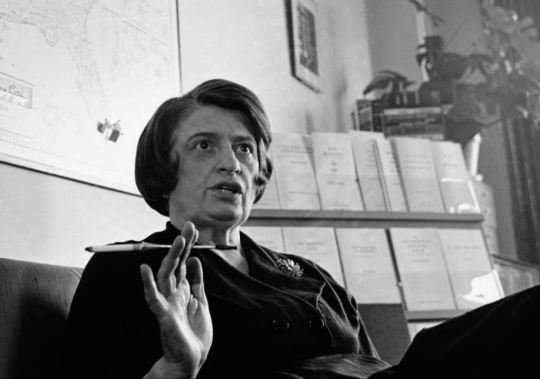
I have had Ayn Rand’s “Atlas Shrugged” sitting in my pile of unread books for years–literally. Between the length of the book itself (over 1,000 pages!) and her polemic reputation, I seem to have been unconsciously avoiding it for some time now. I guess I was afraid of what I would find out when I read about her. However, what has become apparent to me after doing some research is that she was a complicated woman.
Born in Russia, she moved to the U.S. in her 20s to become a writer, writing plays and screenplays before publishing her novels. She was active in politics, and had sometimes opposing views–supporting abortion, being against homosexuality, not supporting the Vietnam war but also being against draft dodgers–you get the idea. She was a strong supporter of capitalism and hated communism and socialism, which, if you know anything about her background, shouldn’t surprise you. When the Russian Revolution happened, her father’s business was taken away and the family was forced into poverty. However, the Russian Revolution also allowed her to be one of the first women to attend university in Russia, where she attained a degree from Petrograd (St. Petersburg) State University. Rand also loved philosophy, creating the movement called Objectivism. She was an active philosopher throughout her whole life. Although conversations and libertarians alike claim her influence, during her lifetime she strongly objected to being associated by both of these parties. She rejected religion and was an atheist.
Another running theme of Rand’s life is the large dismissal of not only her work, but also of her philosophical and political views, during her life. She did not receive much recognition, and one has to wonder: if she were a man, would that still have been the case? I am inclined to think no. This short post about her does not do her life justice–of course. I would encourage anyone, no matter what they think of her, to read more about her and appreciate the fact that everything she did, she did as a woman who was still fighting against the stereotypes and gender discrimination of her time. She deserves recognition solely based on this and the fact that she didn’t receive it during her own life.